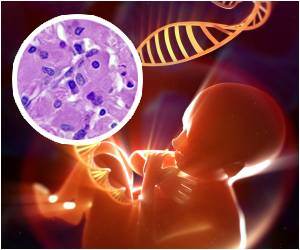Neonatal Genetics: Are We Crossing Ethical Lines?
- admin
- September 19, 2024
- 5:30 am
- No Comments

Neonatal genetics has rapidly advanced, offering unprecedented insights into an infant’s genetic makeup.
From identifying potential health issues to predicting future conditions, genetic screening in newborns is becoming more widespread.
However, with these advancements come complex ethical questions.
Are we entering a realm where our ability to intervene is outpacing our understanding of the moral and societal implications?
This article explores the ethical dilemmas posed by neonatal genetics and whether we are crossing ethical boundaries in the pursuit of better healthcare outcomes.
“Neonatal Genetics” Article Index:
- What is Neonatal Genetics?
- Whole Genome Sequencing (WGS) in Neonatal Care
- Parental Consent: Where Do We Draw the Line?
- Privacy Concerns in Neonatal Genetic Data
- The Issue of Disability Bias
- Distributive Justice: Are These Technologies Accessible?
- Ethical Tensions in Predictive Testing
- Commercialization of Neonatal Genetic Data
- Can Neonatal Genetic Testing Alter the Parent-Child Bond?
- Conclusion: Are We Crossing Ethical Lines?
What is Neonatal Genetics?
Neonatal genetics refers to the use of genetic testing to analyze the DNA of newborns. It enables healthcare providers to detect genetic disorders, some of which may require early intervention.
Neonatal genetic testing is particularly beneficial in diagnosing rare diseases, offering hope for treatment before symptoms even appear. However, the power to peer into an infant’s genetic future opens a Pandora’s box of ethical challenges.

Whole Genome Sequencing (WGS) in Neonatal Care
Whole Genome Sequencing (WGS) represents a leap forward in neonatal genetic testing by decoding a baby’s entire genetic blueprint.
Unlike targeted tests that focus on a few genes, WGS scans all 20,000+ genes (such as KCNJ11 gene leading to neonatal diabetes), offering a panoramic view of potential genetic issues.
In neonatal intensive care units (NICUs), WGS is particularly valuable for critically ill newborns with unexplained symptoms—helping diagnose rare genetic disorders like spinal muscular atrophy or metabolic syndromes within days, guiding early and sometimes life-saving treatments.
However, this technological power comes with significant ethical challenges.
One issue is informed consent: parents must decide whether to unlock complex genetic data without fully understanding its implications.
Moreover, WGS can uncover incidental findings—like future risks for adult-onset conditions such as Huntington’s disease or certain cancers—that may not be relevant in infancy.
Should these results be disclosed?
For example, identifying a BRCA mutation or ABCC8 mutations in a newborn may benefit the parents but raises questions about privacy and timing of disclosure.
Parental Consent: Where Do We Draw the Line?
One of the most pressing ethical issues in neonatal genetics revolves around parental consent. In a high-stress environment, such as the NICU, are parents truly capable of understanding the implications of extensive genetic testing?
Well, some parents deserve to know – for example if recessive mutation in the GCK gene – this can lead to neonatal diabetes.
Research shows that parents are often overwhelmed and may not fully comprehend the long-term impact of testing results
Privacy Concerns in Neonatal Genetic Data
As genetic testing becomes more commonplace, concerns over data privacy are growing.
Genetic data, once collected, can be stored and used for various purposes, including research and even commercial applications.
Parents often express concern about how their child’s genetic information (for example: if their child suffers from beta cell dysfunction or not) may be used without their explicit consent.
The Issue of Disability Bias
A particularly thorny issue in neonatal genetics is the potential for disability bias. Some worry that widespread genetic testing may reinforce societal biases against individuals with disabilities.
Genetic testing may encourage the selective termination of pregnancies based on the likelihood of certain genetic conditions, leading to a world where disabilities are viewed as undesirable.
Distributive Justice: Are These Technologies Accessible?
Distributive justice in neonatal genetic testing highlights a growing concern: unequal access to cutting-edge diagnostics like Whole Genome Sequencing.
While these technologies can drastically improve outcomes, especially for critically ill newborns, they are often limited to affluent regions or private healthcare systems.
In low-resource settings, even basic genetic testing may be unavailable.
This disparity raises ethical questions about fairness—should a child’s future depend on their ZIP code or insurance coverage?
Studies have shown that socioeconomic status, racial background, and geographic location influence access to genomic care.
Ensuring equitable distribution requires policy reform, global collaboration, and investment in healthcare infrastructure.
Ethical Tensions in Predictive Testing
Predictive genetic testing, which identifies the likelihood of future health conditions based on inherited genetic markers, sits at the crossroads of medical advancement and ethical complexity.
While the potential benefits are undeniable—such as early interventions and personalized monitoring—serious ethical tensions arise, particularly when testing is done in childhood.
A primary concern is the psychological weight it places on parents, who may feel overwhelmed by the knowledge that their child could develop a serious condition, even if symptoms may never appear.
This can lead to heightened anxiety, altered parenting behaviors, or even the child being treated differently.
Moreover, issues surrounding the child’s autonomy come into play; they are tested before they are old enough to consent or understand the implications.
There is also the risk of genetic discrimination later in life, including in employment or insurance contexts.
Ethical guidelines increasingly stress the need for genetic counseling to balance foresight with respect for future autonomy and emotional well-being..
Commercialization of Neonatal Genetic Data
There is growing concern about the commercialization of genetic data collected from newborns. Some companies are exploring ways to profit from genetic data, using it for research or even selling it to third parties.
While this could lead to significant medical advancements, it also raises ethical concerns about who benefits financially from this data and whether families are being adequately compensated or informed.
Can Neonatal Genetic Testing Alter the Parent-Child Bond?
Neonatal genetic testing has revolutionized early diagnosis, but its psychological ripple effects on family dynamics are increasingly drawing attention.
Research published in journals such as Pediatrics and the Journal of Genetic Counseling shows that knowledge of a newborn’s genetic predispositions can significantly influence the parent-child relationship—both positively and negatively.
On one hand, early detection empowers parents to prepare for potential health issues and seek timely interventions, which can improve long-term outcomes and foster a protective, proactive parenting style.
However, on the other hand, this foresight can also create emotional strain.
Parents may begin to view their child through the lens of potential illness rather than as a healthy individual, leading to hyper-vigilant behaviors or even overprotection.
In some cases, parental bonding may be delayed due to fear, guilt, or grief associated with the results.
Thus, while genetic insights can be invaluable, they must be accompanied by sensitive counseling to preserve the emotional well-being of the family unit.

Are We Crossing Ethical Lines?
In conclusion, the rapid advancement of neonatal genetic testing offers incredible opportunities to improve healthcare outcomes.
However, with this power comes a responsibility to carefully consider the ethical lines we are crossing.
Issues related to consent, privacy, distributive justice, and the potential for disability bias are just the tip of the iceberg.
While the benefits of neonatal genetic testing cannot be ignored, it is crucial to balance these advancements with ethical considerations.
Are we playing God, or are we simply using the tools we have been given to better the lives of future generations?
The answer is likely somewhere in between, but one thing is clear: the ethical questions surrounding neonatal genetics are far from settled.
Moreover, a knowledge on Herbs that lower blood sugar fast is essential to avoid early diabetes.
References: